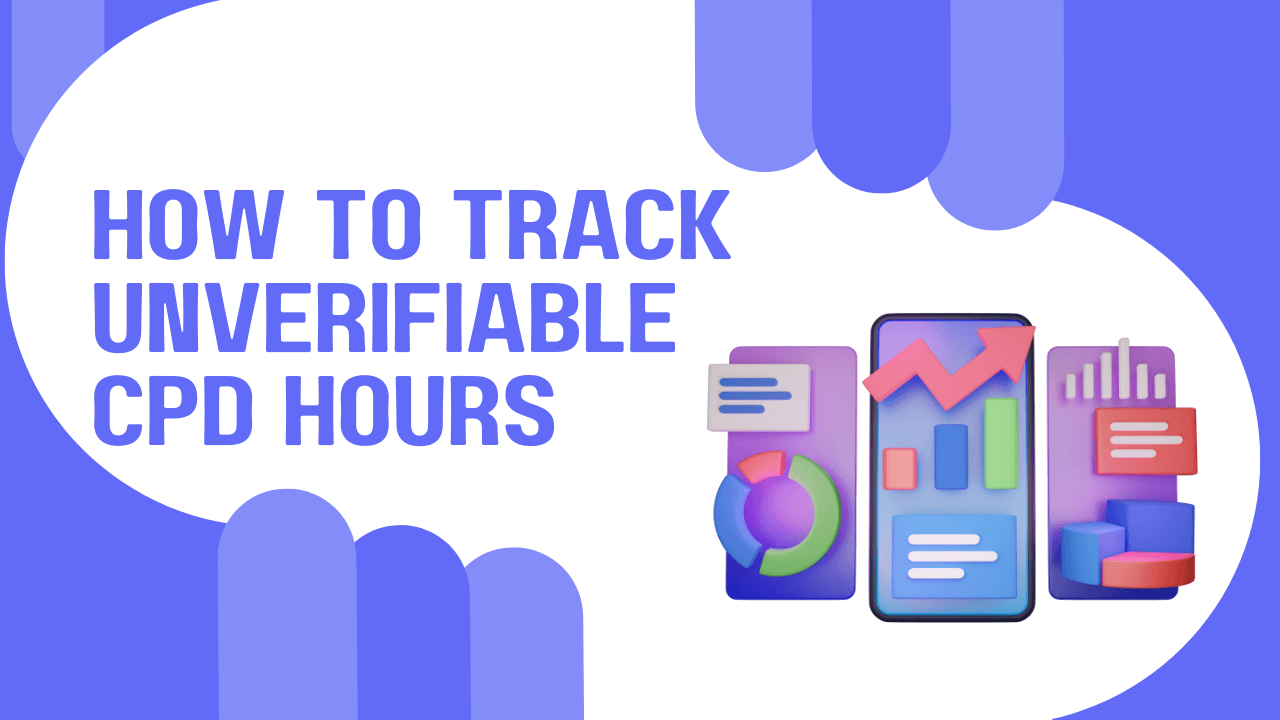How to Track Unverifiable CPD Hours: A Guide for Australian and NZ Accountants
Continuing Professional Development (CPD) is a cornerstone of professional integrity for accountants in Australia and New Zealand. While most practitioners are well-acquainted with the requirements for verifiable CPD, the unverifiable component is often misunderstood—yet it plays a crucial role in meeting your annual and triennial compliance obligations.
In this article, we unpack what counts as unverifiable CPD, why it matters, and—most importantly—how to track your unverifiable CPD hours efficiently and in alignment with regulatory expectations from CPA Australia and CA ANZ.
What Are Unverifiable CPD Hours?
Unverifiable CPD refers to learning activities that enhance your professional competence but do not generate documentary evidence. These are typically informal, self-managed, and often reflective in nature.
Common Examples of Unverifiable CPD:
- Reading accounting or tax journals
- Listening to professional podcasts
- Following relevant LinkedIn learning updates
- Participating in unstructured team discussions
- Self-study without assessment or certificate
- Attending non-educational networking events
Although these hours are less scrutinised than verifiable CPD, they must still be relevant to your role and reflect genuine professional learning.
Why Tracking Unverifiable CPD Matters
While unverifiable CPD may seem low-risk, all major professional bodies — including CPA Australia and CA ANZ require a reasonable balance between verifiable and unverifiable hours. The typical annual requirement is 20 CPD hours, with at least 10 being verifiable. The remaining hours can be unverifiable, provided they are relevant.
If you want to reduce how much unverifiable CPD you need to track manually, consider front-loading your verifiable hours using something like the 60-Hour Triennium Ethics & Compliance Package. It gives you three years of access to fully certified, ethics-aligned CPD, helping you meet the 90-hour verifiable threshold upfront.
Risk of Non-Compliance:
Failing to properly log or justify your unverifiable hours can lead to:
- Rejection of your CPD declaration during audit
- Warnings or sanctions from your accounting body
- Difficulty proving CPD relevance in ethical or litigation matters
How to Track Unverifiable CPD Hours: Step-by-Step
Even though these activities lack formal certificates, proactive self-documentation is essential. Here's a simple workflow to help you maintain compliance.
1. Maintain a CPD Log or Tracker
Use a CPD log spreadsheet, an online tracker, or your accounting body’s member portal.
Key fields to track:
- Date of activity
- Description of learning
- Topic relevance (e.g., ethics, financial reporting, practice management)
- Time spent (in hours or minutes)
- Learning outcome or takeaway
- Evidence (if any): e.g., article link, notes, screenshot
If you use LearnFormula, you can start with the Annual CPD Compliance package, which provides 20 verifiable hours (including ethics), fully online, with certificate storage and built‑in compliance reporting. You can also download our free CPD Log Template for Accountants to simplify tracking of unverifiable hours.
This helps you set up your verifiable CPD baseline and gives you structure for tracking your hours across the year.
2. Be Specific and Reflective in Your Entries
Generic notes like “read tax news” don’t stand up well in CPD audits. Instead, write entries like:
“Reviewed ATO guidance on Division 7A private company loans. Key takeaway: 2025 changes in minimum yearly repayment calculations.”
This approach shows relevance, depth, and intentionality — even without a certificate.
3. Use Tags and Categories
Break your activities into CPD categories:
- Technical (e.g., tax, auditing, IFRS)
- Professional (e.g., leadership, communication)
- Regulatory (e.g., AML, ethics)
- Industry-specific (e.g., construction accounting, SMSF)
This makes annual reporting far easier.
4. Set Monthly or Quarterly CPD Check-Ins
Don’t wait until the year-end to tally your hours. Use tools like:
- Google Calendar
- Trello or Notion
- Monthly CPD reflection journals
You can even set a goal, e.g., 2 unverifiable hours per month, and track your progress.
5. Blend With Verifiable Learning Where Possible
Many LearnFormula courses include reading material, discussion prompts, and reflection exercises — allowing you to derive both verifiable and unverifiable hours from the same topic.
Essential VBA Training for Excel includes downloadable exercise files. Reviewing the additional resources and applying them at work can count as unverifiable CPD if not assessed.
How Many Unverifiable CPD Hours Can You Claim?
Here’s a breakdown by professional body:
|
Body |
Minimum CPD |
Verifiable Minimum |
Unverifiable Limit |
|
CPA Australia |
120 hours (3 yrs) |
90 hours |
Up to 30 hours |
|
CA ANZ |
120 hours (3 yrs) |
90 hours |
Up to 30 hours |
These are subject to change, so always confirm with your latest CPD guide or handbook.
Final Tips to Stay CPD-Compliant
- Be honest — unverifiable hours should reflect genuine learning.
- Stay consistent — update your tracker monthly or after each activity.
- Combine methods — blend verifiable and unverifiable for richer learning.
- Use your CPD to grow, not just to comply.
Conclusion
Being intentional with your CPD tracking builds professional credibility and reduces stress when audits or declarations come up. With the right tools, you can streamline compliance and focus more on genuine professional development.
If you’re looking for the most flexible, all-in-one solution to support both verifiable and unverifiable CPD, the LearnFormula Unlimited Pass is your best option. It gives you:
- Unlimited access to over 3,300 CPD-accredited courses
- Built-in certificate tracking for audit-readiness
- Exposure to diverse topics—from ethics and compliance to Excel, tax, AI, and leadership
- The ability to blend formal learning with informal, self-directed study
Whether you’re planning for the year ahead or managing a triennium cycle, the Unlimited Pass ensures you’re always on track — with maximum freedom, minimum admin.
